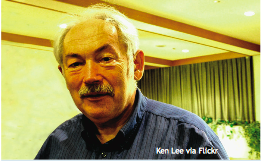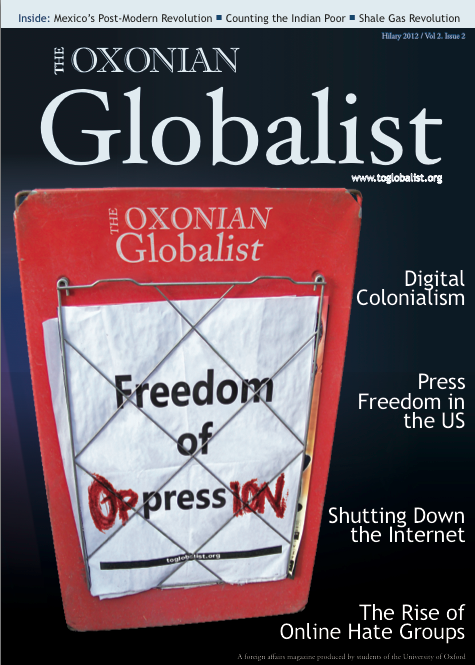
Grünberg's discovery of Giant Magnetoresistance has important implications for data storage and retrieval. Photo by Ken Lee via Flickr.
In 2007, Peter Grünberg was awarded the Nobel Prize in Physics for his work on Giant Magnetoresistance. This discovery, in 1988, paved the way for computer technology manufacturers to produce the first single-gigabyte hard disk drive. In early 2011, Mark Longhurst spoke with him about his ongoing research. The interview below is an edited account of their conversation.
What made you interested in studying the Giant Magnetoresistance? Was it the practical implications or the physics problem that intrigued you?
I cannot say that I was particularly interested in the beginning. For me, it was the result of a development which started in a completely different way. If someone would have asked me, “What will you do in twenty years?”, at that time I would have said, “I don’t know.” I find I’m very interested in light scattering from spin waves. I find spin waves very interesting. Then I started to work on these. Basically, I also tried always to have some continuity in my work. So, I started with light scattering, then I came into spin waves, then I changed the experimental method, but I never changed too much at the same time. So, in a way, simply by going slowly from one project to the other, it guides you somewhere.
Your main goal as a physicist is to produce good publications, and to be as successful as possible when you go to conferences. You want to be able to tell your colleagues something that is exciting and interesting so they will also invite you to their laboratory to give another seminar there. So, the main goal is to have something interesting. And in this way I drifted from one topic to the other.
There have been a number of practical consequences and applications of your research. Which of the future applications excites you the most?
The spin current-induced switching in computers. Also, MRAM (Magnetoresistive Random Access Memory) in the context of energy saving. All together, it is incredible how accessible information has become and what we can do with information. For example, as somebody who has a slight tremor, I have more and more difficulty writing. Computers are helping. Computers give me a lot of assistance. I find science so interesting, and I would like to go on studying this in my life. I like it very much. But this is a really strong handicap for me to write something down. But if I had speech recognition, that would certainly help.
Professor, I know you are in retirement, but are you working on any projects at the moment?
Yes. I am. However, for many practical reasons, doing experiments is not feasible for me. I cannot go back to my lab because many people ask me to give a seminar somewhere, or give an opening speech or a dinner speech. Under these conditions, it is not possible for me to go again to the lab. It was most enjoyable for me to go to the lab and ask myself: “What have I learned today? Does this work?” You have to isolate yourself from others in your work. Follow one goal. Follow one idea. Not being disturbed too much. This is not possible in this situation.
So, I’m now working with computer models. I know some theoreticians who can help me with my research. I allow my theoreticians to guide my work. But I do a lot of computer work. I like that very much. I like computer programs and numerical studies where I can change the parameters. That gives me a better understanding of what is going on qualitatively. I can better understand things qualitatively by undertaking quantitative studies.
Finally, looking to the future, what do you think the main challenges will be for young physicists who want to work in the field of spintronics in the next twenty years? What challenges need to be overcome for the next generation of devices?
I can tell you that I believe that in physics and science there will be a tremendous amount of big, big problems. For example, in material science, indium is running out. There will no more in a few years. It’s running out. We need lithium batteries. Lithium is a very important element for batteries. Lithium is one of the rare elements. Also, copper. Now, in Germany, probably many other countries probably, they collect copper. When you leave some device or apparatus for the garbage people to collect them, they come with a pair of pliers, cut off the cord with the copper, and leave the rest.
The point is, in material, we need many new other elements to replace some elements which we use now to improve some qualities of some alloy. So, there is a huge amount of problems coming up for scientists and physicists in material science.



